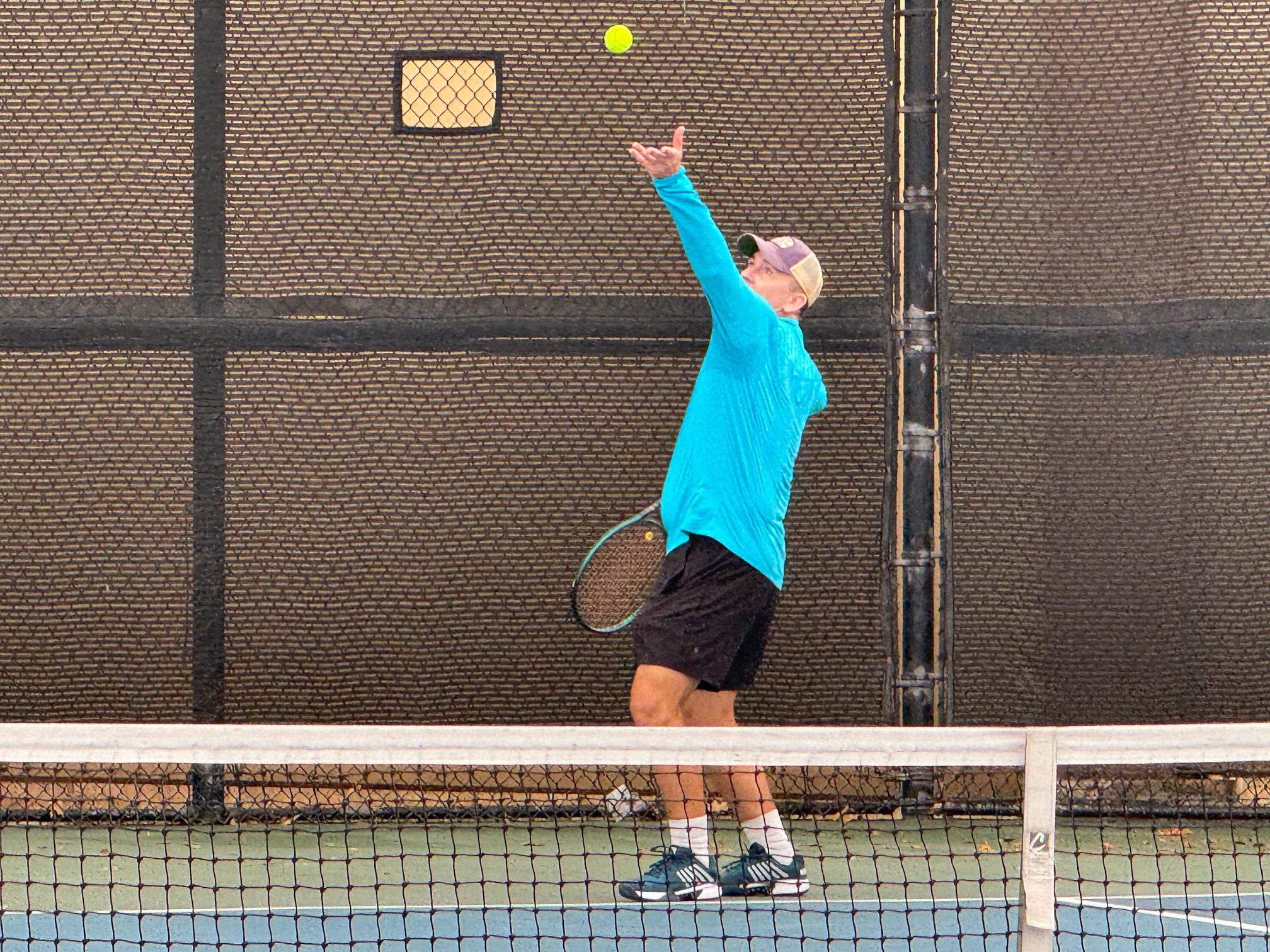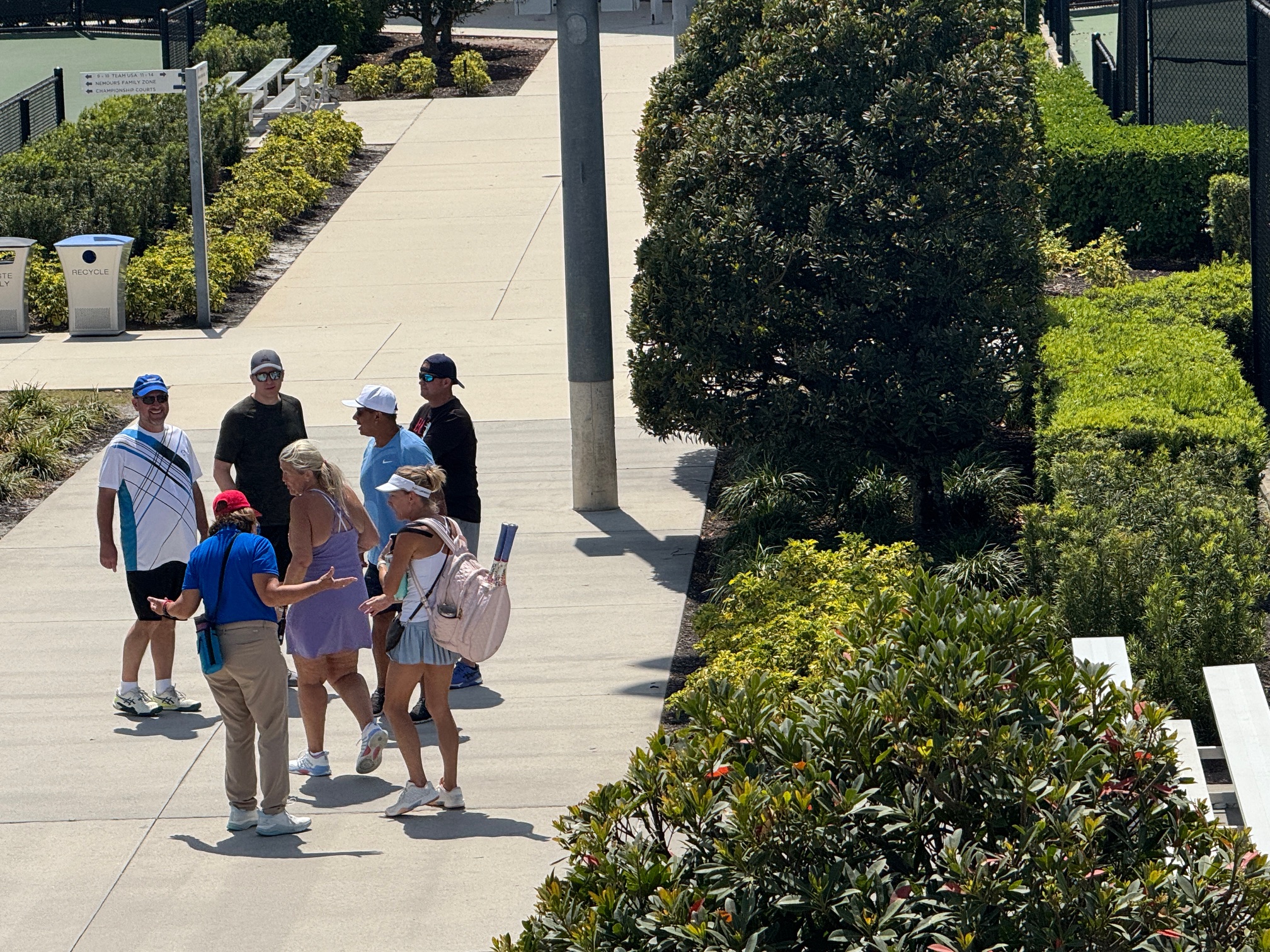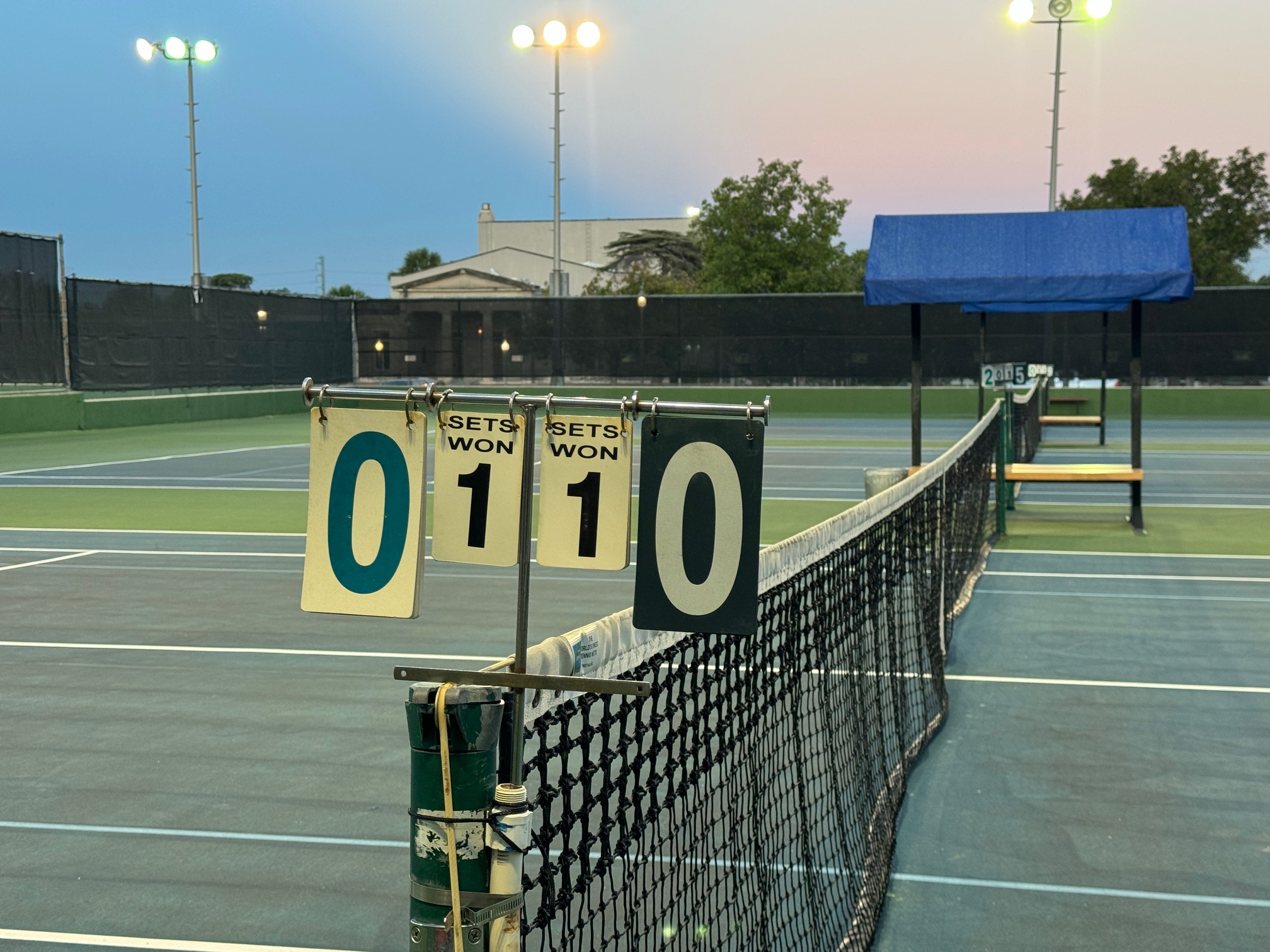I almost fell off my elliptical trainer while watching the Wimbledon semi-final match between Novak Djokovic and Jannik Sinner. Taking a picture is one of the methods that I use to bookmark a point that I might want to write about later. In related news, when Richard Haigh is in the chair, there is an above-average chance that something interesting will happen. ESPN tweeted a clip of Haigh’s hindrance call against Djokovic. You definitely need the audio on for this one.
Since this event occurred during Wimbledon, the Grand Slam Rulebook holds precedence. However, that source does not even contain the word hindrance. That means that the ITF Rules of Tennis is authoritative. What is written in that resource does not address grunting or audible sounds in any way. Additionally, there are no relevant ITF Case Decisions against the Hindrance rule.
26. HINDRANCE
If a player is hindered in playing the point by a deliberate act of the opponent(s), the player shall win the point.
2023 ITF Rules of Tennis
Had this episode occurred during an ATP match, the rule would have been more clear. In fact, I previously wrote about a similar situation in “Hindrance is in the Eye of the Beholder” which breaks down the ATP rule. That post included a YouTube video of Robin Haase getting called for the exact same infraction.
While the situations are similar and the umpire’s calls were the same, the intent to distract is much more apparent for Haase than Djokovic. Haase made several shots before suddenly grunting shortly after returning a deep ball. By my ear, it sounds like he was mimicking a linesman’s “Out” call.
In the Haase example, he subsequently claimed that he was fed up with his opponent’s grunting. In fact, many fans argued that if what Djokovic did was a hindrance, then it should be called on every point. However, the key in both cases isn’t that there was a grunt, but rather that it departed from the player’s baseline sounds.
I don’t agree that Djokovic’s grunt was intended to distract. He was extended, and struggling to recover position to the center of the court. The fact that there is no explicit rules coverage in this scenario during a Grand Slam tournament adds an interesting twist to a controversial situation.
In the end, it does not matter because Djokovic won the game where the hindrance (and a subsequent time violation) occurred. He crushed Sinner in straight sets anyway.
- 2023 Official Grand Slam Rulebook, International Tennis Federation, viewed January 1, 2023.
- ITF Rules of Tennis, International Tennis Federation, 2023
- ATP Official Rulebook, ATP, 2023 (Not applicable in this situation.)




There are other famous examples also. Do you recall Serena Williams shout of ‘Come on’ as she hit a ball towards Sam Stosur’s side of the court? Sam Stosur had a play on the ball but the shout came before she could execute. The ball passed her for a perceived winner – until the umpire ruled ‘hindrance’.
If the hindrance call on Djokovic was wrong, then what should be regarded as a hindrance? The shout/grunt by Djokovic was not heard previously in the match and was emitted after the ball had crossed the net which was a substantial amount of time after he had hit the ball from behind the baseline. The sound came just before Sinner made contact with the ball.
It matters not that Djokovic went on to win the match – or the name of the umpire.
The umpire made the correct call and there were no other such instances afterwards in the match. The ruling had the desired effect.
Mention of the time violation ruling does raise an issue that is worthy of a separate note. Umpires, generally, were very lenient on the enforcement of the time between points rule where Djokovic was concerened. Even the BBC commentators noted, in the final and other matches of his, the ‘serve clock’ was stopped by umpires in mid-flow for no apparent reason other than to give Djokovic more time to bounce the ball and keep his opponent waiting.
I agree with Allan’s post. Tennis spectators have suffered for years with Sharapova and Azarenka’s ridiculously loud grunts, but at least those players were (mostly) consistent in their timing and volume. In my opinion, grunting loudly after the ball has left a player’s racquet and your opponent is about to return it is clearly a hindrance and should be called consistently. Don’t call it if the shot results in a clean winner.
Side note, have you ever played a match where some of the opponent’s grunts sound like “out”? I have and it’s definitely a fool me once, shame on you situation.